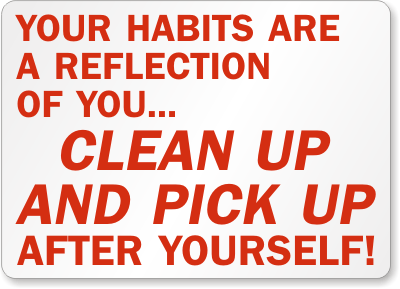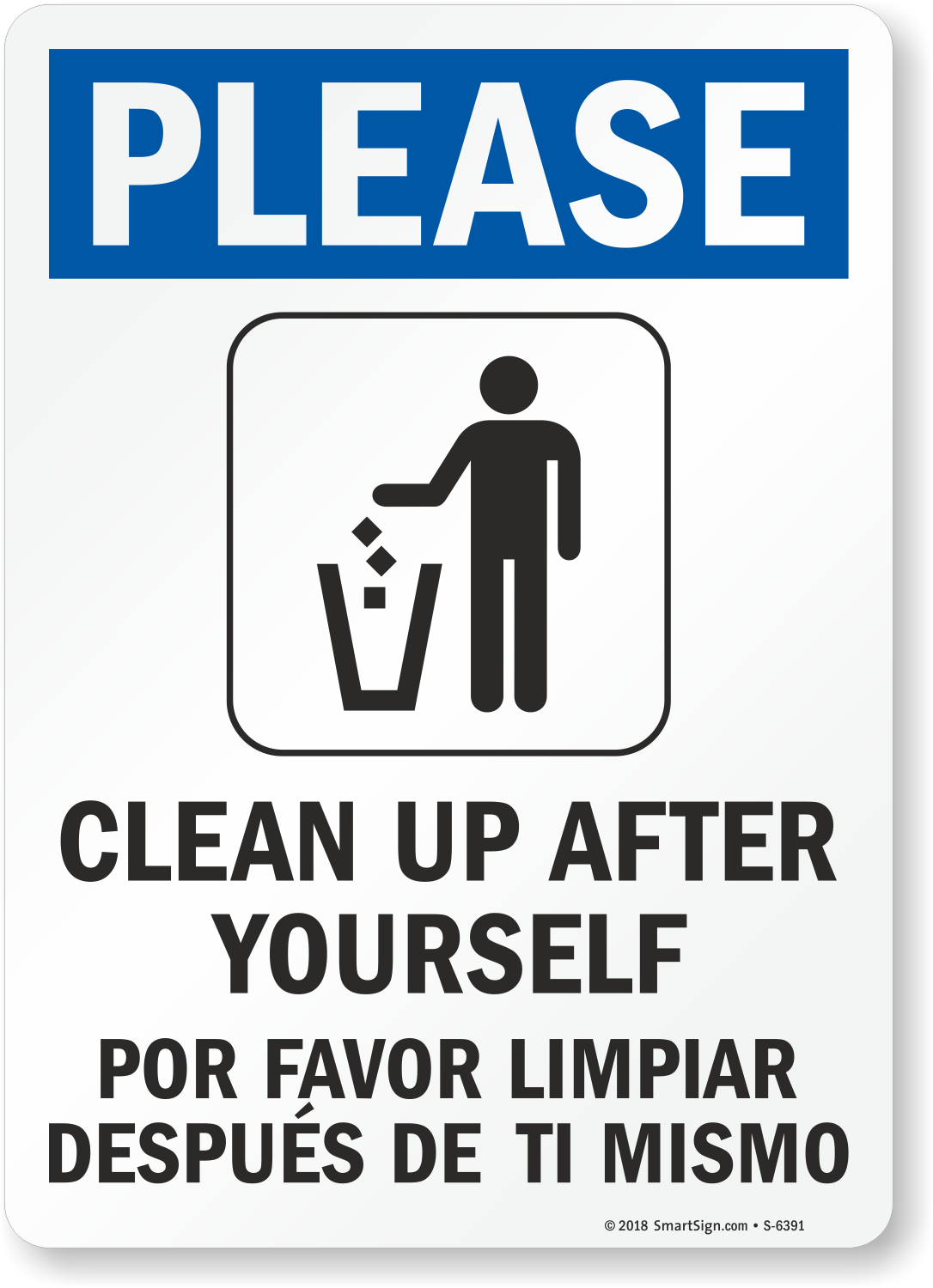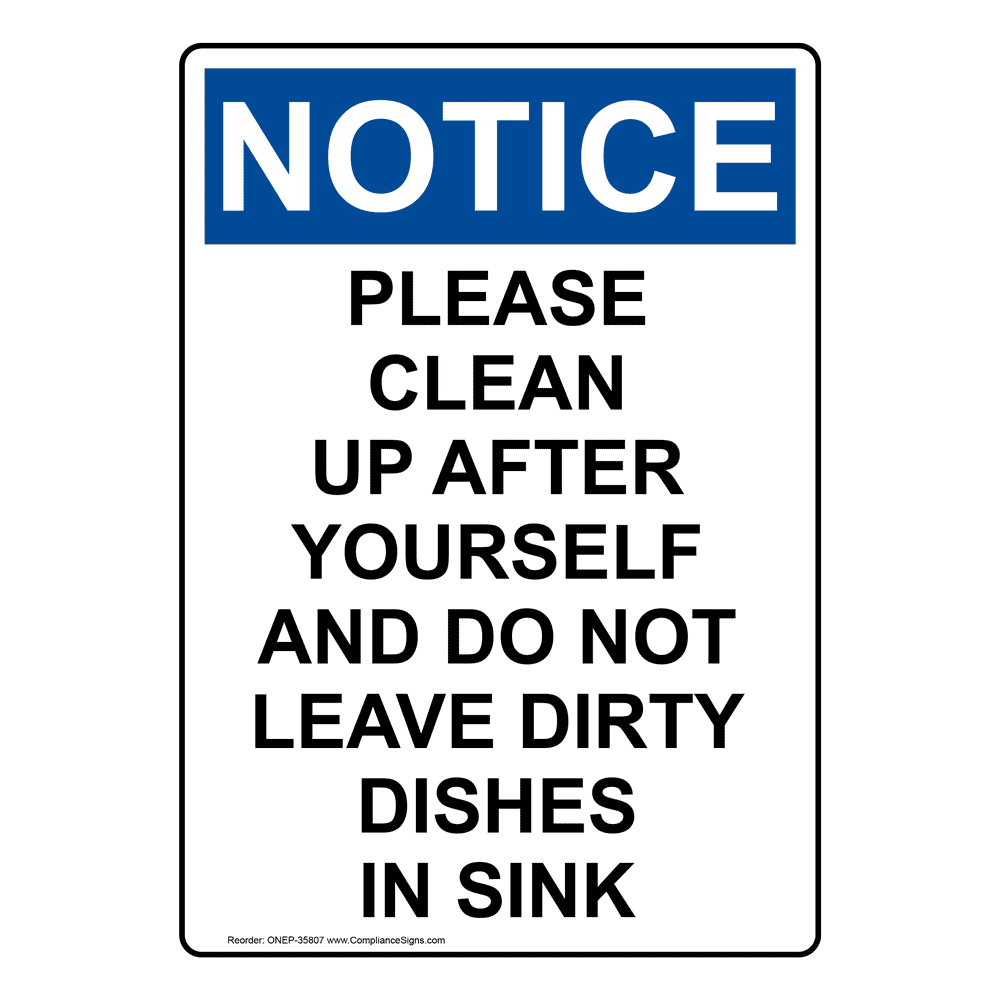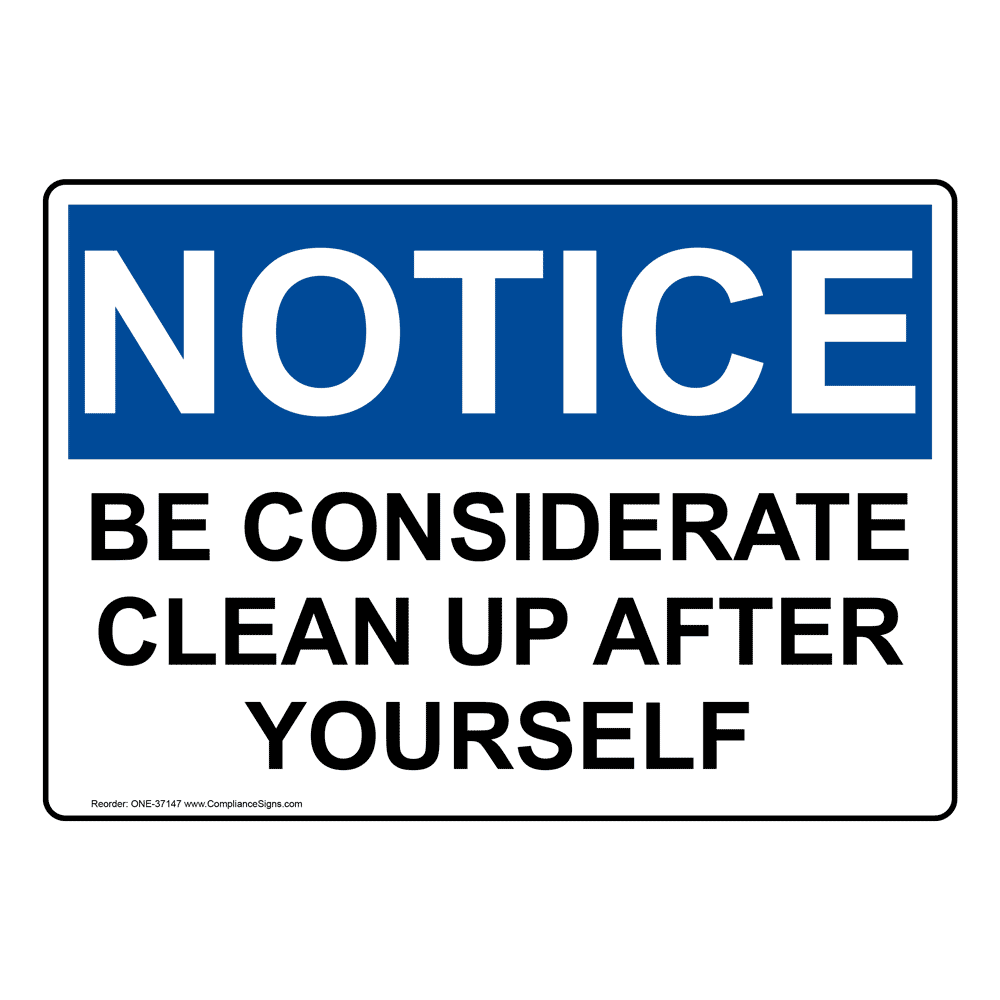As Asian people, we value cleanliness and tidiness in our living spaces. It is important to create an environment that is not only visually appealing but also promotes good hygiene and organization. To maintain cleanliness, we understand the significance of cleaning up after ourselves. In fact, it is a practice that is instilled in us from a young age.
Signs that Promote Cleanliness
 One effective way to remind everyone to clean up after themselves is by putting up signs. These signs act as gentle reminders and serve as visual cues to encourage individuals to take responsibility for their own mess. The “Keep This Area Clean - Your Mother Isn’t Here, So Clean Up” sign, for instance, humorously prompts individuals to clean up after themselves, highlighting the absence of their mother’s presence.
One effective way to remind everyone to clean up after themselves is by putting up signs. These signs act as gentle reminders and serve as visual cues to encourage individuals to take responsibility for their own mess. The “Keep This Area Clean - Your Mother Isn’t Here, So Clean Up” sign, for instance, humorously prompts individuals to clean up after themselves, highlighting the absence of their mother’s presence.
 A similar sign that conveys a more straightforward message is the “Be Considerate Clean Up After Yourself” sign. This sign, with its bold typography, clearly communicates the expectation of cleaning up after oneself, promoting a clean and organized environment for everyone.
A similar sign that conveys a more straightforward message is the “Be Considerate Clean Up After Yourself” sign. This sign, with its bold typography, clearly communicates the expectation of cleaning up after oneself, promoting a clean and organized environment for everyone.
 For those who are fans of fantasy, the “Clean up after yourself house elves don’t work here” sign brings a touch of whimsy to the responsibility of cleaning up. Referencing house elves from popular literature, this sign serves as a gentle reminder that cleaning up is not someone else’s responsibility.
For those who are fans of fantasy, the “Clean up after yourself house elves don’t work here” sign brings a touch of whimsy to the responsibility of cleaning up. Referencing house elves from popular literature, this sign serves as a gentle reminder that cleaning up is not someone else’s responsibility.
 To add a personal touch, the “Please Clean up After Yourself Printable Poster Kitchen Family” sign on Etsy allows you to customize your message. This printable poster can be placed in communal areas, reminding all family members or housemates to clean up their own messes.
To add a personal touch, the “Please Clean up After Yourself Printable Poster Kitchen Family” sign on Etsy allows you to customize your message. This printable poster can be placed in communal areas, reminding all family members or housemates to clean up their own messes.
Why Clean Up After Yourself?
 Keeping our living spaces clean and organized is not just about appearance, it also has numerous benefits for our mental and physical well-being. By cleaning up after ourselves, we create a harmonious environment that reduces stress and promotes relaxation. Clutter and mess can make us feel overwhelmed, whereas cleanliness has a calming effect on our minds.
Keeping our living spaces clean and organized is not just about appearance, it also has numerous benefits for our mental and physical well-being. By cleaning up after ourselves, we create a harmonious environment that reduces stress and promotes relaxation. Clutter and mess can make us feel overwhelmed, whereas cleanliness has a calming effect on our minds.
Cleaning up after ourselves also prevents the spread of germs and bacteria, which helps maintain good health. By removing food scraps, wiping surfaces, and properly disposing of waste, we minimize the risk of illness and disease transmission. This is especially important during flu seasons or times of heightened hygiene concerns.
 Furthermore, practicing cleanliness and tidiness cultivates discipline and a sense of responsibility. By taking ownership of our own mess, we demonstrate respect for shared spaces and consideration for others. This not only fosters positive relationships with our housemates or family members but also reflects our values as individuals.
Furthermore, practicing cleanliness and tidiness cultivates discipline and a sense of responsibility. By taking ownership of our own mess, we demonstrate respect for shared spaces and consideration for others. This not only fosters positive relationships with our housemates or family members but also reflects our values as individuals.
Bilingual Clean Up After Yourself Sign
 In diverse communities, it can be beneficial to have signs that accommodate multiple languages. The “Bilingual Please Clean Up After Yourself” sign serves this purpose by featuring both English and another language, ensuring that the message is effectively delivered to a wide range of individuals. This promotes inclusivity and ensures that everyone understands the importance of cleanliness.
In diverse communities, it can be beneficial to have signs that accommodate multiple languages. The “Bilingual Please Clean Up After Yourself” sign serves this purpose by featuring both English and another language, ensuring that the message is effectively delivered to a wide range of individuals. This promotes inclusivity and ensures that everyone understands the importance of cleanliness.
 For workplaces, the “OSHA Please Clean Up After Yourself” sign reinforces the legal requirement of maintaining a clean and safe environment. This sign reminds employees to clean up their workstations and common areas, protecting their own well-being and that of their colleagues through a hygienic work environment.
For workplaces, the “OSHA Please Clean Up After Yourself” sign reinforces the legal requirement of maintaining a clean and safe environment. This sign reminds employees to clean up their workstations and common areas, protecting their own well-being and that of their colleagues through a hygienic work environment.
 The “OSHA Be Considerate Clean Up After Yourself” sign specifically emphasizes the importance of cleanliness in restrooms. This is crucial for preventing the spread of germs and maintaining a sanitary space for everyone to use. By reminding individuals to clean up after themselves, this sign promotes a positive restroom etiquette.
The “OSHA Be Considerate Clean Up After Yourself” sign specifically emphasizes the importance of cleanliness in restrooms. This is crucial for preventing the spread of germs and maintaining a sanitary space for everyone to use. By reminding individuals to clean up after themselves, this sign promotes a positive restroom etiquette.
In conclusion, cleanliness and tidiness are deeply valued in many Asian cultures. By using signs to remind individuals to clean up after themselves, we actively promote these values and create a clean, organized, and harmonious environment. Cleaning up after ourselves not only benefits our own well-being but also demonstrates respect for shared spaces and consideration for others.